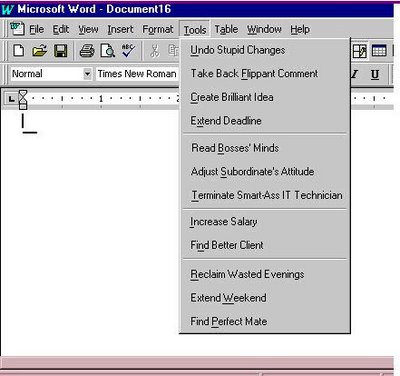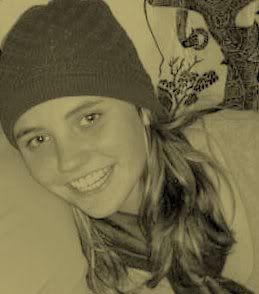Prayer Revival
A challenging article...
In 1952 Albert Einstein was asked by a Princeton doctoral student what was left in the world for original dissertation research Einstein replied, "Find out about prayer". English preacher Sidlow Baxter, when he was eighty-five years of age, said, "I have pastored only three churches in my more than sixty years of ministry. We had revival in every one. And not one of them came as a result of my preaching. They came as a result of the membership entering into a covenant to pray until revival came. And it did come, every time (Willhite 1988:111).
Chaplain of the United States Senate, Richard HaIverson, advised that we really don"t have any alternatives to prayer. He says, You can organise until you are exhausted. You can plan, program and subsidise aIl your plans. But if you fail to pray it is a waste of time. Prayer is not optional. It is mandatory. Not to pray is to disobey God" (Bryant 1984:39).
Roy Pointer, after extensive research in Baptist churches in the United Kingdom, anived at the conclusion that wherever there was positive growth, there was onerecurring factor: they were all praying churches.
In the United States of America, at Larry Leas Church on the Rock in Rockwall, Texas, numerical growth was from 13 people in 1980 to 1 l,000 people by 1988. When he was asked about such amazing growth, he said "I didnt start a church - I started a prayer meeting". When David Shibley, the minister responsible for prayer in that church was asked the secret of the church, he said, "The evangelistic program of the church is the daily prayer meeting. Every morning, Monday through Friday, we meet at 5:00 a.m. to pray. If we see the harvest of conversions fall off for more than a week, we see that as a spiritual red alert and seek the Lord" (ShibIey 1985:7).
In Korea, where the church has grown from almost zero to a projected 50% of the population in this century alone, Pastor Paul Yonggi Cho attributes his churchs conversion rate of 12,000 people per month as primarily due to ceaseless prayer. In Korea it is normal for church members to go to bed early so they can arise at 4 a.m. to participate in united prayer. lt is normal for them to pray all through Friday nights. lt is normal to go out to prayer retreats.
Cho says that any church might see this sort of phenomenal growth if they were prepared to "pray the price; to "pray and obey." Cho was once asked by a local pastor why was it that Cho s church membership was 750,000 and his was only 3,000 when he was better educated, preached better sermons and even had a foreign wife ? Cho enquired, "How much do you pray? The pastor said "Thirty minutes a day." To which Cho replied, "There is your answer. I pray three to five hours per day."
In America one survey has shown that pastors on average pray 22 minutes per day. In mainline churches, it is less than that. In Japan they pray 44 minutes a day, and China 120 minutes a day. It"s not surprising that the growth rate of churches in those countries is directly proportional to the amount of time pastors are spending in prayer.
In 1952 Albert Einstein was asked by a Princeton doctoral student what was left in the world for original dissertation research Einstein replied, "Find out about prayer". English preacher Sidlow Baxter, when he was eighty-five years of age, said, "I have pastored only three churches in my more than sixty years of ministry. We had revival in every one. And not one of them came as a result of my preaching. They came as a result of the membership entering into a covenant to pray until revival came. And it did come, every time (Willhite 1988:111).
Chaplain of the United States Senate, Richard HaIverson, advised that we really don"t have any alternatives to prayer. He says, You can organise until you are exhausted. You can plan, program and subsidise aIl your plans. But if you fail to pray it is a waste of time. Prayer is not optional. It is mandatory. Not to pray is to disobey God" (Bryant 1984:39).
Roy Pointer, after extensive research in Baptist churches in the United Kingdom, anived at the conclusion that wherever there was positive growth, there was onerecurring factor: they were all praying churches.
In the United States of America, at Larry Leas Church on the Rock in Rockwall, Texas, numerical growth was from 13 people in 1980 to 1 l,000 people by 1988. When he was asked about such amazing growth, he said "I didnt start a church - I started a prayer meeting". When David Shibley, the minister responsible for prayer in that church was asked the secret of the church, he said, "The evangelistic program of the church is the daily prayer meeting. Every morning, Monday through Friday, we meet at 5:00 a.m. to pray. If we see the harvest of conversions fall off for more than a week, we see that as a spiritual red alert and seek the Lord" (ShibIey 1985:7).
In Korea, where the church has grown from almost zero to a projected 50% of the population in this century alone, Pastor Paul Yonggi Cho attributes his churchs conversion rate of 12,000 people per month as primarily due to ceaseless prayer. In Korea it is normal for church members to go to bed early so they can arise at 4 a.m. to participate in united prayer. lt is normal for them to pray all through Friday nights. lt is normal to go out to prayer retreats.
Cho says that any church might see this sort of phenomenal growth if they were prepared to "pray the price; to "pray and obey." Cho was once asked by a local pastor why was it that Cho s church membership was 750,000 and his was only 3,000 when he was better educated, preached better sermons and even had a foreign wife ? Cho enquired, "How much do you pray? The pastor said "Thirty minutes a day." To which Cho replied, "There is your answer. I pray three to five hours per day."
In America one survey has shown that pastors on average pray 22 minutes per day. In mainline churches, it is less than that. In Japan they pray 44 minutes a day, and China 120 minutes a day. It"s not surprising that the growth rate of churches in those countries is directly proportional to the amount of time pastors are spending in prayer.











